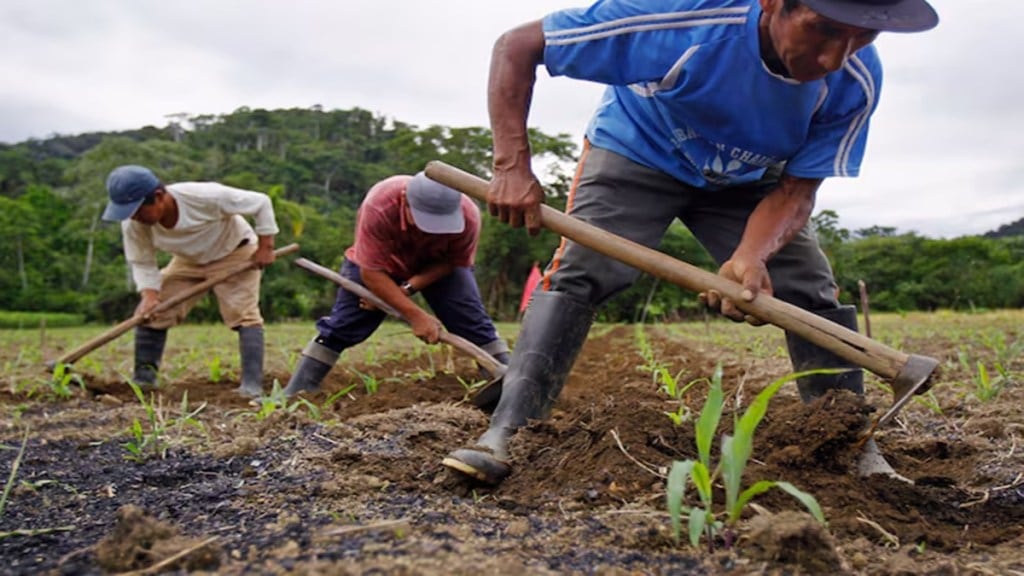By Arpita Mukherjee & Ketaki Gaikwad
The establishment of farmer producer organisations (FPOs) was a great initiative started by the government of India in the early 2000s to help small and marginal farmers achieve economies of scale, increase their bargaining power by negotiating collectively, double their income, and reach the global markets. FPO is not a unique concept—similar models have been adopted in other countries like Mexico, Thailand, and China. It has helped their small farmers to enter the export market. In India, small and marginal farmers represent 86% of farmers, and they lack access to essential inputs, credit, modern technology, infrastructure, and are unable to connect to global sourcing firms/ buyers.
To resolve such issues, the Indian government, in 2021, launched a new central sector scheme, Formation and Promotion of 10,000 Farmer Produce Organisations, with an allocation of Rs 68,650 crore to form and promote 10,000 new FPOs nationwide. However, an ongoing survey by ICRIER, covering 43 FPOs and over 200 member farmers in spices (particularly turmeric) across six states, found that FPOs continue to face similar challenges in scaling up and accessing global markets, like the small and marginal farmers.
Assessing critical gaps in market linkages
Around 80% FPOs said that they are unable to identify and reach buyers, manufacturers, processors, and exporters, which are vital for their sustainability. On the other hand, companies and foreign sourcing agents complained that they do not know which FPO is in the spices segment, so they continue to source from traders and traditional channels like mandis. Although over 8,000 FPOs are registered on the website of the ministry of agriculture and farmers welfare, there is no information on which products they cater to. Hence, the manufacturers, sourcing agents, and global buyers do not know who to go to for their requirements.
While many standards are in India, laid down by different agencies like Food Safety and Standards Authority of India (FSSAI), Bureau of Indian Standards (BIS), Agricultural and Processed Food Products Export Development Authority (APEDA), Export Inspection Council (EIC), and Spices Board to name a few, FPOs are often confused about what standard to follow and which one will help them to reach international markets. Globally, each country has the right to have their own standards, and very few have mutual recognition agreements for standards with India. Thus, while our standards may be good, they are hardly accepted by the importing countries. Therefore, 72% of the FPOs felt that the domestic standard setting process is too complex and that they lack information on the standards and requirements of the export markets, leading to product rejections by the global clients, even if some of them are able to access global buyers through B2B events and net browsing. Global buyers want product traceability, and many FPOs do not know how to implement it.
When asked about the use of e-commerce platforms to reach the domestic and global markets, while the government has several initiatives like the Open Network for Digital Commerce (ONDC) and electronic trading platforms like eNAM; many FPOs and their members have limited knowledge about how to leverage such platforms effectively. For example, as of November 11, there are no turmeric FPOs listed on the ONDC platform.
The survey found that while there are success stories of multi-stakeholder partnerships between state governments, multinational bodies, companies, and FPOs and they have helped the latter scale up and reach global markets, there is limited learning from such best practices and/or success stories. One such example is that of the Kandhamal Apex Spices Association for Marketing (KASAM) in Odisha for promoting Kandhamal turmeric. KASAM was formed as a collaboration of 61 Spice Development Societies under the government of Odisha. It signed a memorandum of understanding with Kisan Saathi, under which the former has been working with two KASAM FPOs—Gumapadar FPC Ltd. and Sastri FPC Ltd.—to help them to reach global markets. Gumapadar FPC Ltd. is exporting Kandhamal turmeric to NedSpice Group from Netherlands. This demonstrates that with strategic partnerships and coordinated efforts, FPOs can overcome market barriers and go global.
How can our FPOs go global?
Scaling up and addressing the knowledge gap is crucial for the turmeric FPOs to go global. The database of FPOs should be comprehensive, providing detailed and product-specific information. This will enable global companies to locate and engage with relevant FPOs, fostering partnerships that could eventually lead to higher price realisation and better market access for farmers.
There is a need for increased support to onboard the FPOs on e-commerce platforms, along with educating farmers on using government platforms like the eNAM to help them expand market reach.
Knowledge transfer on global compliance standards like sanitary and phytosanitary measures, maximum residue levels, and technical barriers to trade is crucial, and can be supported through multi-stakeholders’ partnership models. There is a need for product-specific training and guidelines related to compliance standards and regulations for key markets. Successful examples and best practices should be scaled up through knowledge sharing.
The writers are respectively professor and research assistant, ICRIER.
Disclaimer: Views expressed are personal and do not reflect the official position or policy of FinancialExpress.com. Reproducing this content without permission is prohibited.

